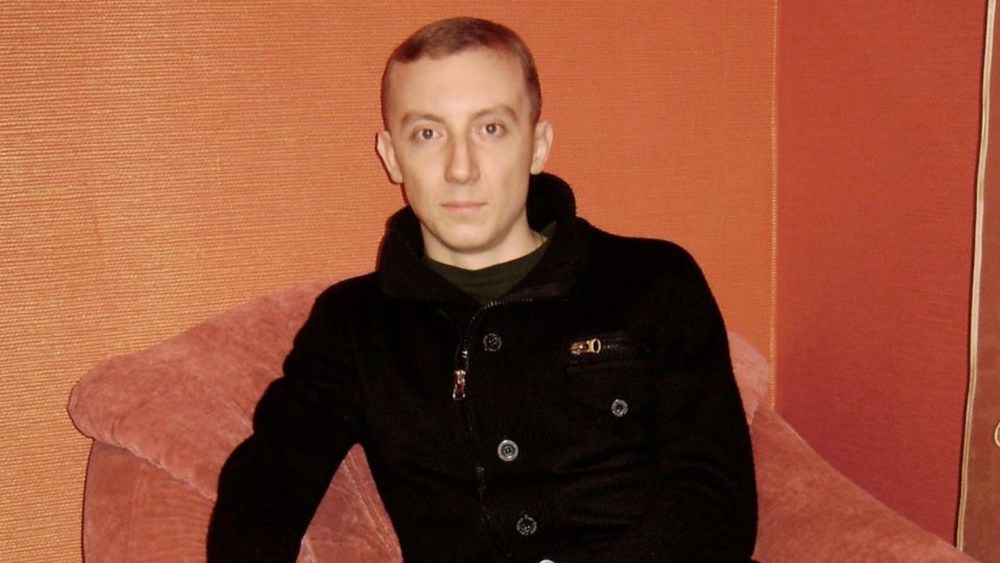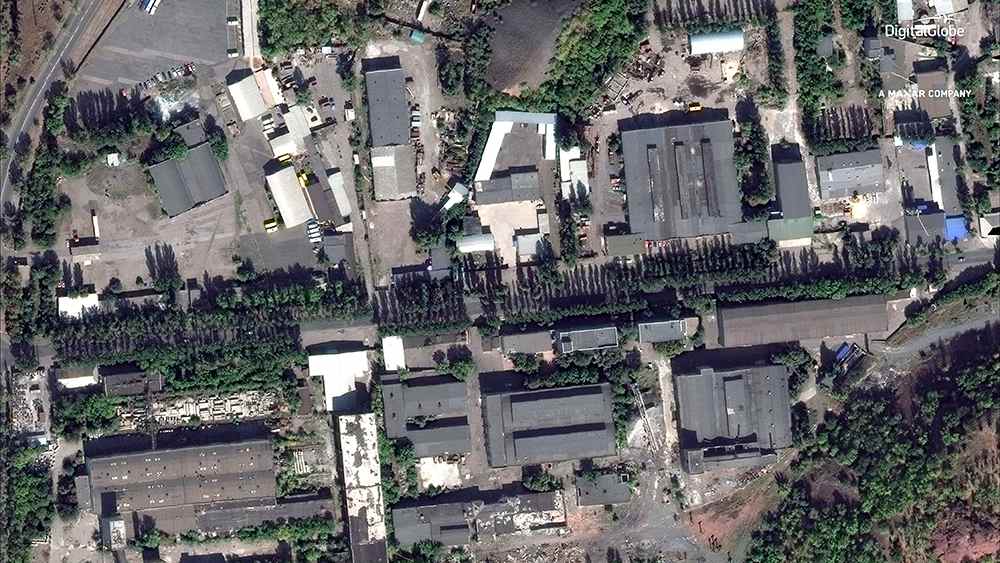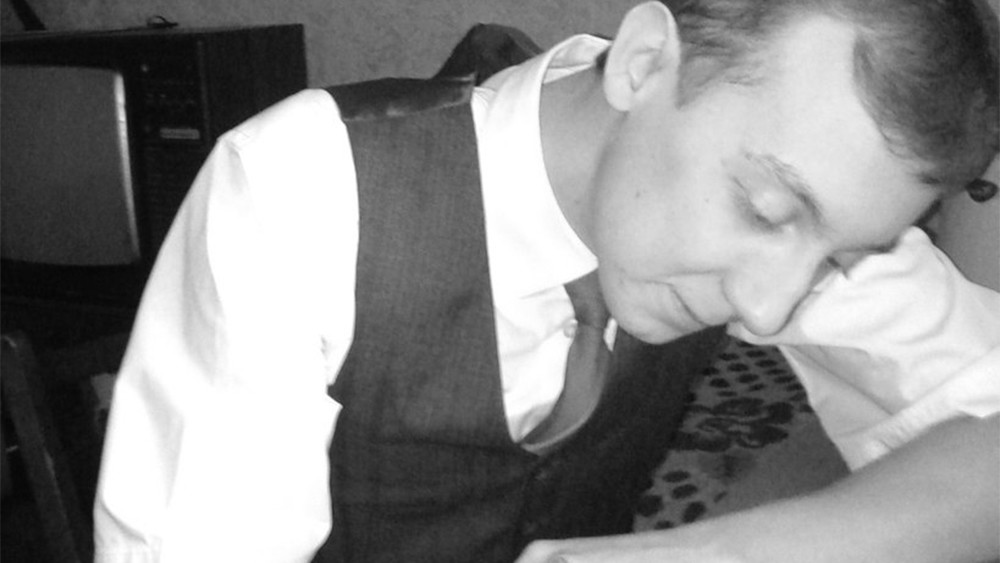COLLEGE PARK, Maryland – As Russian television cameras rolled, one of the last Ukrainian journalists remaining in separatist-held Donbas stumbled over his espionage confession, barely five minutes long.
Stanislav Aseyev’s employer and colleagues said the confession, filmed by Rossiya 24 and published in August, was forced and untruthful.
“This was done to illustrate…that no Ukrainian journalist would ever want to go to the Donbas and write the truth about what is happening,” Denis Kaplunov, a friend, told Capital News Service. “They punished Stanislav to warn everyone else.”
Aseyev, 29, became a journalist for the U.S.-funded Radio Free Europe/Radio Liberty — known as RFE/RL — in 2014. He has been held in a factory converted to a military base and prison by the Russian-backed separatist Donetsk People’s Republic, or DPR, since his capture from his hometown of Donetsk in June 2017, according to RFE/RL and his friend.
The number of RFE/RL journalists killed, assaulted or imprisoned rose from 34 in 2017 to 42 in 2018, the organization said.

RFE/RL was created during the Cold War to counter Soviet propaganda. It is now an independent news agency that reports in 22 countries, most of them former Soviet territories. Though still funded by Congress, U.S. law prohibits control or interference by the U.S. government.
Aseyev was unaware he was being targeted.
“When Stas talked with our editors last time, he had no clue that he was being followed,” Maryana Drach, director of RFE/RL’s Ukrainian service, told Capital News Service.
When the DPR first took control, “it was easier to get accreditation” to report from the region, said Lina Kushch, first secretary of the National Union of Journalists of Ukraine. After about a year, the group denied further requests to enter the area.
The change occurred after DPR leadership realized that journalists could “expose something undesirable about how they govern,” said Keith Darden, associate professor in American University’s School of International Service.
“Prior to that point, they wanted people to know this is an actual movement partly rooted in the actual attitudes of the people of Donetsk,” he said, “…that this is a legitimate armed struggle against a government that they saw as illegitimate.”
Representatives of the DPR could not be reached for comment.
The DPR, along with the Luhansk People’s Republic, both in the eastern part of the country, broke away from Ukraine in 2014. It is financially and militarily dependent on Russia, which seeks to push Ukraine away from the west and under Russia’s influence, said former U.S. ambassadors to Ukraine John Herbst and Steven Pifer.
After the separatist takeover, news channels and publications were replaced by Kremlin-supported media, according to Gulnoza Said, the Committee to Protect Journalists’ Europe and Central Asia program coordinator.
Aseyev choose to stay in Donetsk where his family lives. He felt an obligation to report what was happening during the media blackout, Drach said.
Journalists who wrote for Ukrainian publications had to decide whether to write investigative stories that would then be twisted into Russian propaganda, said Alisa Sopova, a journalist from Donetsk. They also worried about how to report the truth while family and friends were caught in the violence.
Intense fighting has mostly stopped in the city. Shelling and mines remain a concern, especially near the DPR border with Ukraine. Nineteen journalists and media workers have been killed in Ukraine since 1992, according to the Committee to Protect Journalists. Seven died in 2014 alone.
According to the Council of Europe, four journalists are imprisoned in Ukraine.
Aseyev was previously an academic — having graduated from the State University of Informatics and Artificial Intelligence — and earned a masters at Donetsk National Technical University.
He has written about the realities of city life, such as how easily he could vote multiple times in different districts around Donetsk during primary elections and that most of the few people participating in the elections were older retirees.
“They are a chronicle of Russian aggression in the Donbas, through the eyes of a simple resident,” Kaplunov, his friend, said.
On June 2, 2017, at 6:25 p.m., Aseyev filed his last report for RFE/RL’s Donbas Realities, a radio program. He told his mother he would visit her the next day. After not hearing from him, his mother and friends visited his apartment and found indications of illegal entry. His computer was missing.
Family, friends and colleagues feared the worst.
More than a month later, the DPR confirmed in a written statement sent to his mother that they were holding Aseyev, Yegor Firsov, a friend and former parliamentarian, wrote on Facebook. A year later, Aseyev surfaced on Rossiya 24 confessing to espionage.
Aseyev is being kept in the Isolyatsiya Art Centre, a former factory turned art exhibit turned military base, according to RFE/RL, and has been allowed to see only his elderly mother. Attempts by Capital News Service to reach her were unsuccessful.

On Sept. 14, Ambassador Toni Frisch of the Organization for Security and Cooperation in Europe, visited Aseyev. ”Mr. Aseyev…confirmed to us that he has no major complaints about the place of detention, its medical care and nutrition,” said Matthias Bosshard, political adviser to Frisch.
A former professor of Aseyev’s, Ihor Kozlovsky, was detained in 2016 and held in basement prisons throughout Donetsk, although not in the same place as Aseyev, the professor said.
When Kozlovksy was released in 2017, he told the Ukrainian news organization Hromadske that the cells were so small he could barely move, and a hole in the floor served as the bathroom. At times he had a sack over his head as interrogators shouted and pointed guns at him.
According to the U.S. Department of State’s annual Human Rights Report on Ukraine, an extensive network of prisons exists in Donetsk. They are located in basements, sewage wells and garages and aren’t fit even for short-term detention, with reports of “shortages of food, water, heat, sanitation and proper medical care.”
The Trilateral Contact Group, which hosts talks with representatives from the separatists, Ukraine, Russia, France and Germany, offers Aseyev the best chance for freedom, as it did for Kozlovsky, said his colleagues. But the process has largely stalled.


You must be logged in to post a comment.